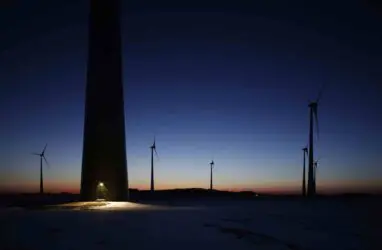Feed aggregator
New gas power plants to stop blackouts - minister
NZ Climate Commission warns of material NZU oversupply, calls for large cuts to auction volumes
Oregon sets 2024 rulemaking timeline to re-establish scrapped Climate Protection Program
PREVIEW: RGGI Q1 sale expected to trigger additional volumes
Renewables provide 52 pct of German power in 2023, as wind overtakes coal
The post Renewables provide 52 pct of German power in 2023, as wind overtakes coal appeared first on RenewEconomy.
Can earth-covered houses protect us from bushfires? Even if they’re a solution, it’s not risk-free
Indigenous fire management began more than 11,000 years ago: new research
Just 6% of past voluntary carbon credit issuances likely to meet ICVCM’s CCP label -analysts
VCM Report: KSET liquidation sparks sell off in voluntary carbon spots and futures
Bird flu infects penguins at famous wildlife haven
Carbon utilisation and removal firm launches new DAC unit for agriculture
US DOE offers $425 mln towards clean energy production, decarbonisation in former coal communities
Exchange to imminently launch CORSIA, REDD+ voluntary carbon futures
Russia-Ukraine war to trigger cropland expansion worldwide, study says
Sperm whale dies after being stranded on Florida beach
Police and wildlife officials were unable to rescue the animal because of high winds and surf in Gulf of Mexico waters
A sperm whale who became stranded on a Florida beach over the weekend has died, state’s fish and wildlife conservation commission said in a statement on Monday.
The case was an urgent one for animal preservationists because sperm whales are classified as an endangered species.
Continue reading...BofA eyes EU carbon trading growth -Bloomberg
Overlooked umbrella species could better inform conservation programmes, study finds
Almost half of cane growers sceptical of science behind laws protecting Great Barrier Reef
Review found ongoing ‘mistrust’ among farmers, including many who remain unconvinced by need for pollution regulations
A review of the Queensland government’s Great Barrier Reef protection regulations has found that almost half the affected farmers still believe there is little or no scientific evidence to support pollution reduction rules.
The laws, passed in 2019, were based on scientific advice that limits on sediment and chemical runoff were needed in the reef catchment, amid concerns about water quality.
Continue reading...



